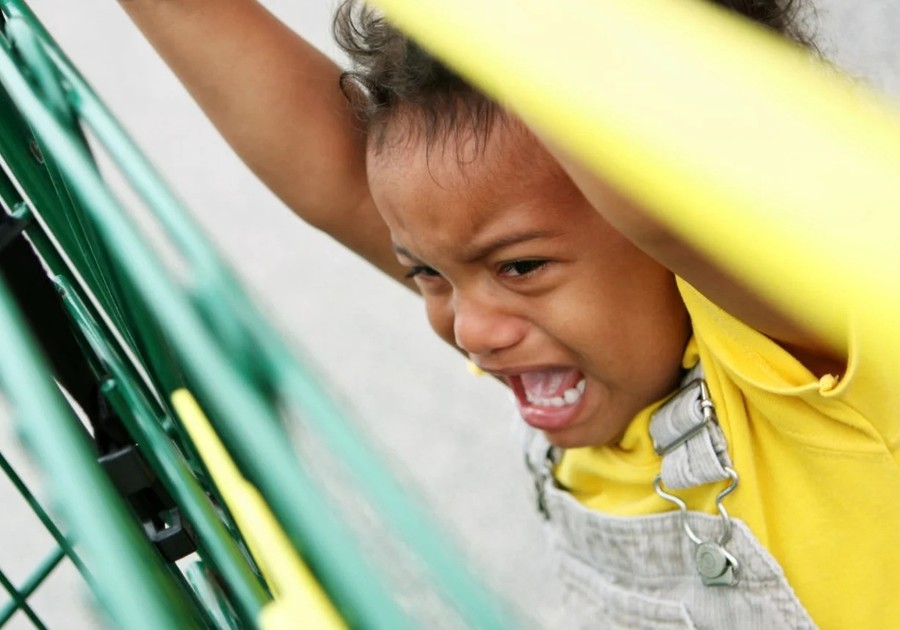
You don’t have to be a parent very long before you discover that little kids have BIG feelings. They scream with rage when their brother snatches a toy. The huge sobs when they get the orange plate instead of the blue. The unsurpassed joy when handed an ice cream cone. Kids feel things big.
These days, you can read dozens of parenting books or follow hundreds of Instagram accounts that emphasize the importance of allowing children to feel their feelings. The mantra goes that all feelings are OK, even if all behaviors are not. It’s a well-intentioned message: By encouraging kids to express their emotions, we’re helping them develop emotional intelligence and resilience. However, as with all things in parenting, balance is key.
The Emotional Rollercoaster
Young children experience emotions intensely and unfiltered. Their emotional responses can seem out of proportion to the situation—like melting down over a mismatched plate or erupting in sheer joy over a small treat. These reactions can be overwhelming for both the child and the parent, leading to frustration and confusion.
The Importance of Acknowledging Feelings
It’s crucial to acknowledge and validate your child’s feelings. When a child feels heard and understood, they are more likely to learn how to manage their emotions effectively. Simple statements like, “I see you’re upset because you wanted the blue plate,” can go a long way in helping them feel seen and validated. However, the goal isn’t just to validate but to guide them toward understanding and managing those big feelings in healthy ways.
Teaching Emotional Regulation
While all feelings are valid, not all behaviors are. As parents, we need to teach our children that while it’s okay to feel angry or sad, it’s not okay to hit, scream, or throw things. This is where the concept of emotional regulation comes in. By helping children identify their feelings and guiding them toward appropriate ways to express those feelings, we can equip them with tools they’ll use throughout their lives.
For example, if a child is angry because their sibling took a toy, rather than saying, “It’s okay to be angry,” try saying, “I see you’re angry because your brother took your toy. It’s okay to feel that way, but it’s not okay to hit. Let’s talk about how we can solve this problem together.” This approach not only acknowledges their feelings but also teaches them how to handle conflicts constructively.
Balancing Feelings with Responsibility
In today’s world, there’s a strong emphasis on being true to oneself and expressing one’s feelings openly. While there’s value in this, it’s also important to teach our children that feelings, while important, shouldn’t always dictate their actions. Life involves balancing our emotions with our responsibilities and the needs of others.
For instance, just because a child feels like staying up late doesn’t mean it’s healthy for them to do so. Teaching children that sometimes we need to do things we don’t feel like doing is an essential life skill. It’s about finding a balance between honoring our feelings and understanding our responsibilities.
The Role of Parents in Emotional Development
As parents, our role is to guide our children through the complex world of emotions. We need to teach them to recognize, understand, and manage their feelings in a way that’s healthy and constructive. This involves setting boundaries, offering guidance, and modeling emotional regulation ourselves.
One way to do this is by sharing our own experiences with emotions. For example, if you’re feeling frustrated after a long day, you might say, “Mommy is feeling frustrated because it’s been a long day. I’m going to take a few deep breaths to calm down.” This not only models healthy emotional regulation but also shows your child that it’s okay to experience a range of emotions.
Embracing the Joy and Challenges
Parenting big feelings isn’t always easy, but it’s an essential part of helping our children grow into emotionally intelligent and resilient adults. By acknowledging their feelings, teaching them to regulate their emotions, and modeling healthy emotional behavior, we can help them navigate their big feelings with grace and understanding.
As a lighthearted addition to this serious topic, here are some answers given by 2nd-grade school children to the question, "Why did God make moms?" These were published on Macaroni KID New City - Nyack in 2012 by Lori Cunningham and are sure to make you smile.
- Why did God make mothers?
- "To help us out when we were getting born."
- "Mostly to clean the house."
- Why did God give you your mother and not some other mom?
- "We're related."
- "God knew she likes me a lot more than other people’s moms like me."
- What kind of little girl was your mom?
- "My mom has always been my mom and none of that other stuff."
Kids have a way of cutting right to the heart of things, don’t they?
Parenting big feelings is a journey, but it’s one that’s filled with opportunities to teach, learn, and grow—both for our children and for ourselves.
Navigating the emotional ups and downs of parenting is no easy feat, but you don't have to do it alone! Join the Macaroni KID New City - Nyack community to explore more tips, stories, and advice on raising emotionally intelligent and resilient kids. Plus, you'll get access to family-friendly events and activities in your area! Subscribe today and take the first step toward fostering emotional growth and connection with your little ones. Let’s parent big feelings together!
Ready to join? Subscribe now!



